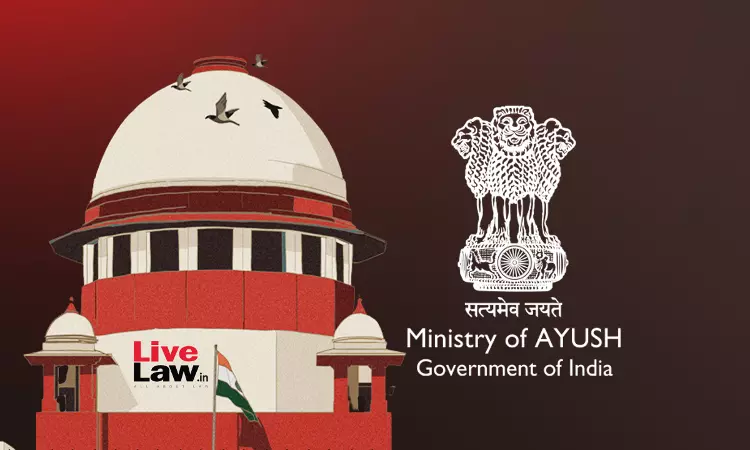Clinical Trial Norms Diluted For AYUSH Drugs, Says Amicus; Supreme Court Seeks Centre's Response
Debby Jain
30 July 2024 7:13 PM IST

Next Story
30 July 2024 7:13 PM IST
On hearing the Patanjali misleading ads case, the Supreme Court today called upon Union of India to answer a contention that Rules with regard to clinical trials have been diluted in relation to AYUSH drugs - particularly in the context of new indications.The matter was before a bench of Justices Hima Kohli and Sandeep Mehta, which was informed by Amicus Curiae Shadan Farasat that...
